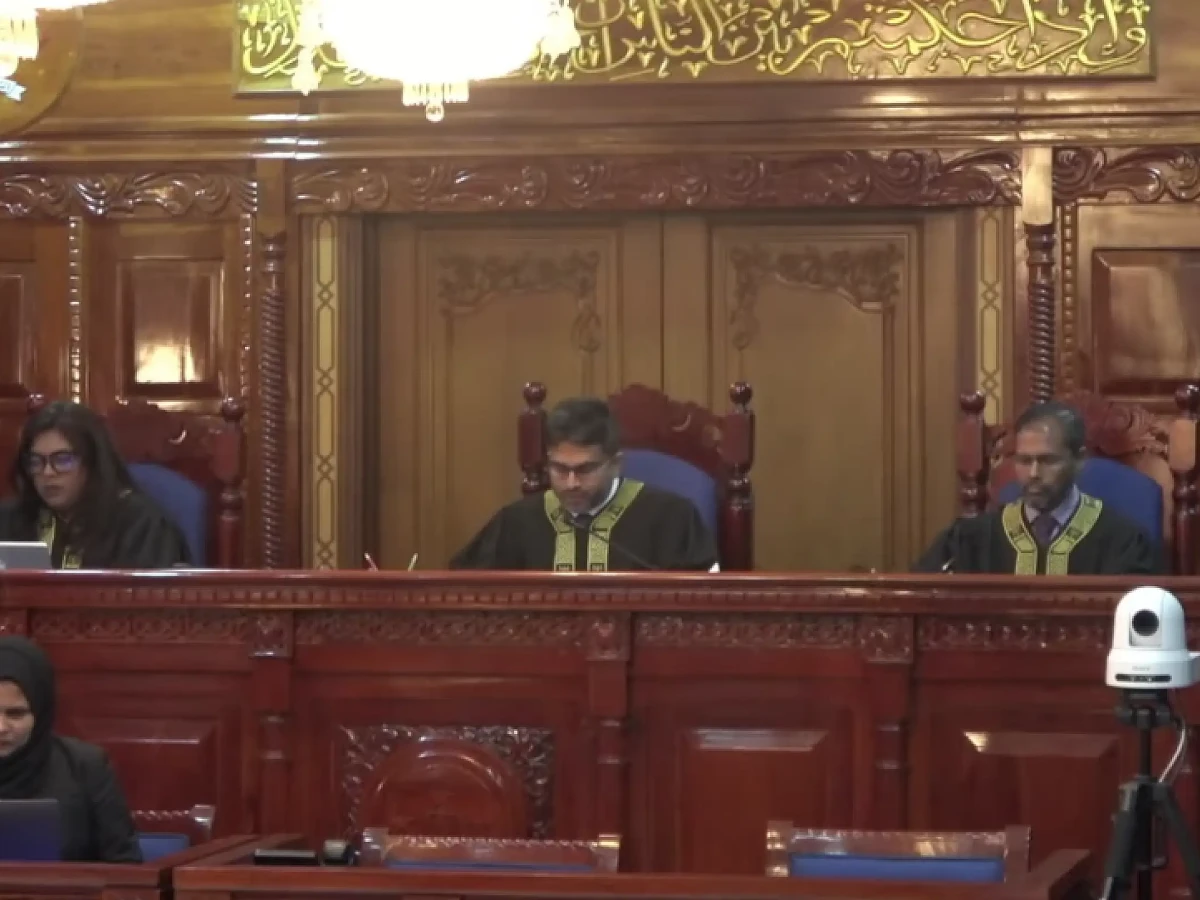
SC overturns High Court ruling on ACC role in graft probes
The Supreme Court’s decision establishes that the ACC must be involved in corruption investigations tied to money laundering.
Top Stories
-
MP Mauroof released from custody, receiving hospital treatment
-
House floor sinks in Malé during nearby construction work
-
PNF to hold special rally at Artificial Beach on Wednesday
-
MDP MP says Mauroof arrest may breach parliamentary privileges
-
Complaint filed with JSC over judge’s remarks on defence lawyer
The Supreme Court on Wednesday ruled that the High Court erred in determining that corruption cases related to money laundering can be investigated solely by the police without the involvement of the Anti-Corruption Commission (ACC).
The ruling came in connection with the appeal filed by former Controller of Immigration, Shamman Waheed, who challenged the Criminal Court’s decision to remand him in custody pending trial. While the Supreme Court upheld the remand order, it overturned the part of the High Court’s ruling that excluded the ACC from the investigation process.
Shamman’s legal team had appealed to the Supreme Court on three main points:
-
That his initial detention was unlawful due to the ACC’s non-involvement;
-
That the High Court’s finding, which allowed police to investigate corruption without the ACC, should be quashed; and
-
That all detention orders should be invalidated.
Justice Hussain Shaheed, presiding over the case, stated that while the police have the authority to investigate money laundering independently, corruption involving abuse of official position is a distinct offence that falls under the joint investigative authority of both the police and the ACC.
“Since corruption related to money laundering is a separate offence under the law, and the ACC has jurisdiction to investigate such offences, the High Court’s ruling that the police may conduct such investigations without ACC participation is inconsistent with Article 77 of the Criminal Procedure Code,” Shaheed said.
The two other judges on the bench concurred, and the Court unanimously decided to overturn that portion of the High Court’s ruling.
Shamman Waheed has been charged with three offences:
-
Abuse of official position;
-
Participation in robbery; and
-
Money laundering.
The charges relate to an incident on 11 March, in which Shamman allegedly instructed four subordinates to monitor foreign nationals in the country without informing the relevant division within the Immigration Department.
The Supreme Court’s decision establishes that the ACC must be involved in corruption investigations tied to money laundering, clarifying investigative responsibilities in such cases.




